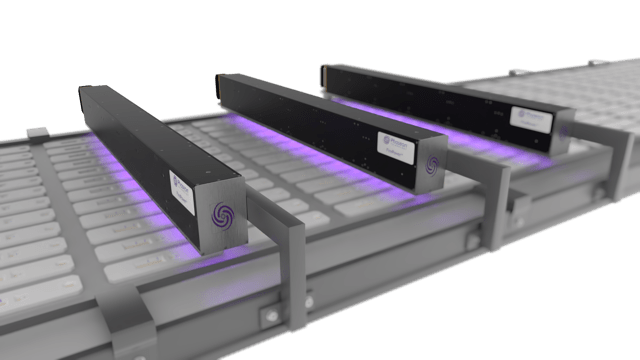
Overview
High Intensity UV LED technology brings new opportunities to research labs for decontamination and inactivation. Both microorganisms and biological material inactivate with the right dose of UV light. Phoseon’s KeyPro™ high-irradiance ultraviolet LED system ideally suits microbiology labs that need to quickly and reliably inactivate viruses, or for labs that require decontamination for high fidelity RNA library prep, sequencing, and PCR.
Phoseon’s patented Semiconductor Light Matrix (SLM)™ technology enables the KeyPro system to increase lab productivity. Complete inactivation of laboratory contaminants can be accomplished by the KeyPro system in under five minutes and at fraction of the cost of traditional methods.
Viral Inactivation for Microbiology Labs
KeyPro allows researchers to decontaminate microplates, inactivate viruses, and disinfect labware surfaces from bacteria and viruses. Preliminary data indicate that high-intensity ultraviolet light can be tuned to partially or completely inactivate viruses without damaging recognition features. Retaining recognition features is challenging with existing methods of virus inactivation.
Laboratory Decontamination for Sequencing Labs
KeyPro inactivates RNases, specifically RNase A, are difficult to irreversibly inactivate in the absence of long-term heat treatment or harsh chemicals. Such methods may be incompatible with common laboratory materials or complicate subsequent biochemical reactions. Fast, complete, and irreversible inactivation of RNase A with mercury arc lamp sources have been difficult to achieve due to low power output at targeted wavelengths and the need to filter harmful wavelengths that do not contribute to the inactivation.